What is an Open Space UNconference?
An... unconventional way to run a conference that - once you try - you can never go back!!
What is an Open Space Unconference?
Choose between:
- ⏱️ executive / TL;DR version,
- 📸 photonovela version, and
- 🧐 academic version
The tl;dr version
✔ It’s all about conversations that matter
Bring your own burning questions, listen to those of others, participate in a lot of discussion sessions and get even smarter than you already are – together!
❌ It’s not about speakers bringing presentation slides
Nope. Please. Don’t. Seriously!
There are plenty of nice conferences to apply for as a speaker – SoCraTes Crete just isn’t one of them.
The version with Photos
Here’s what your day looks like:
- Marketplace, first thing in the morning
- Sessions
- Lunch
- More Sessions or Excursions
- Dinners
Marketplace
1. It starts with topic suggestions at the “Marketplace”.
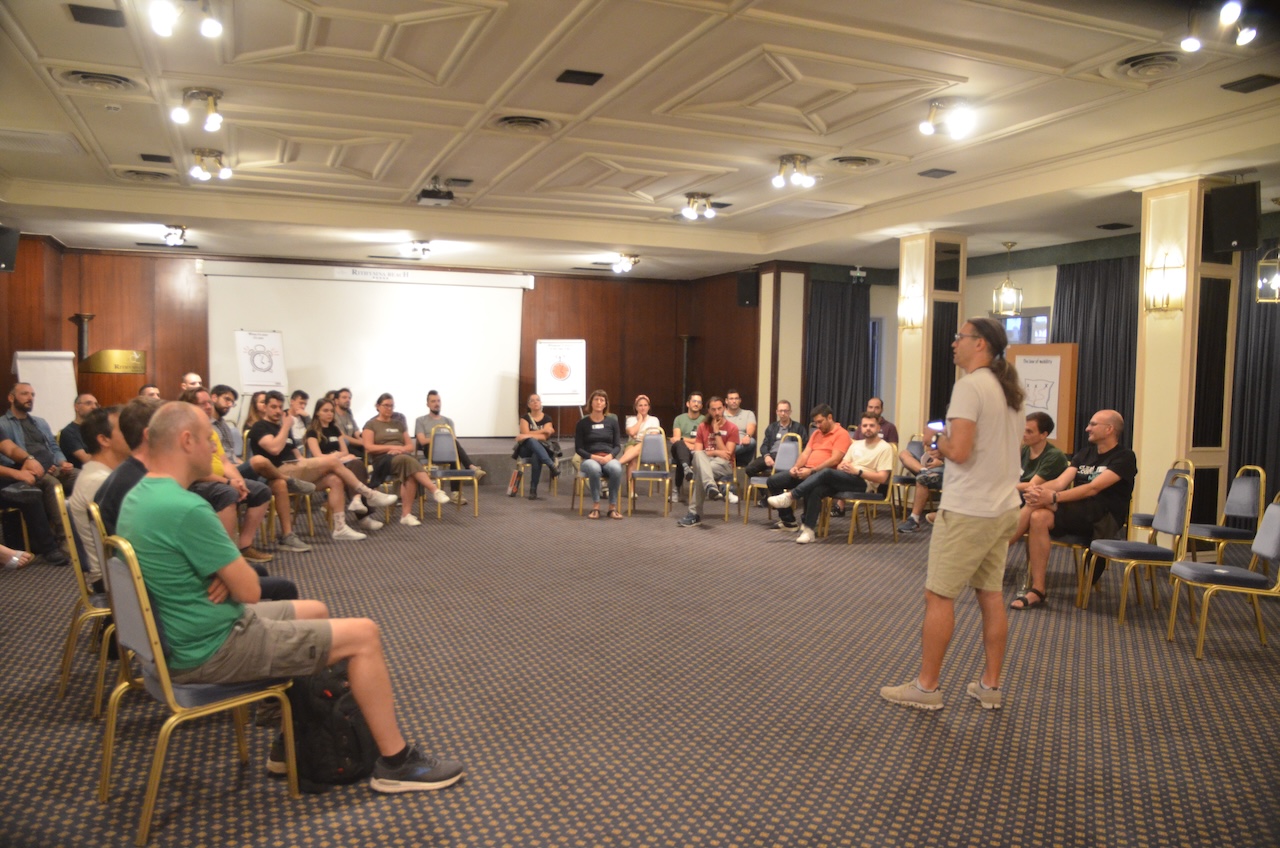
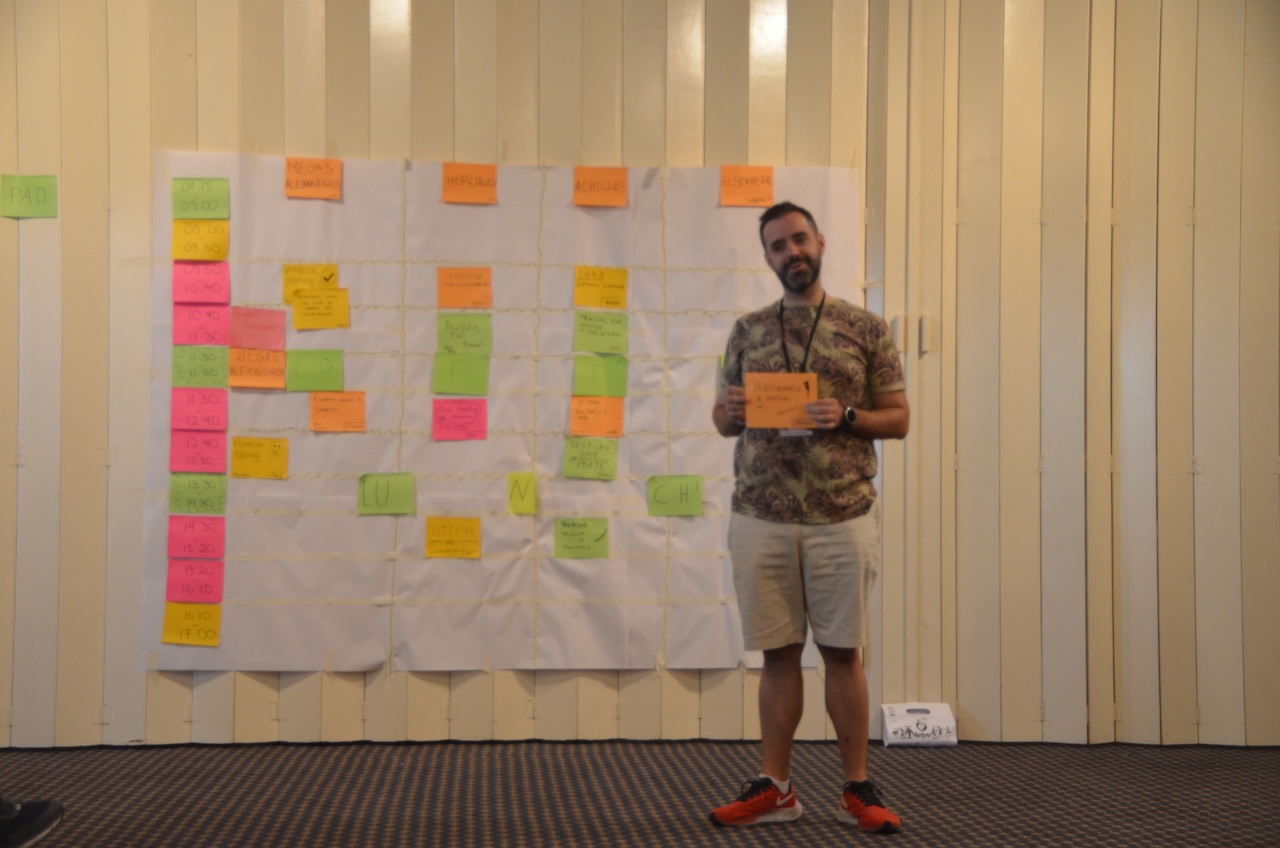
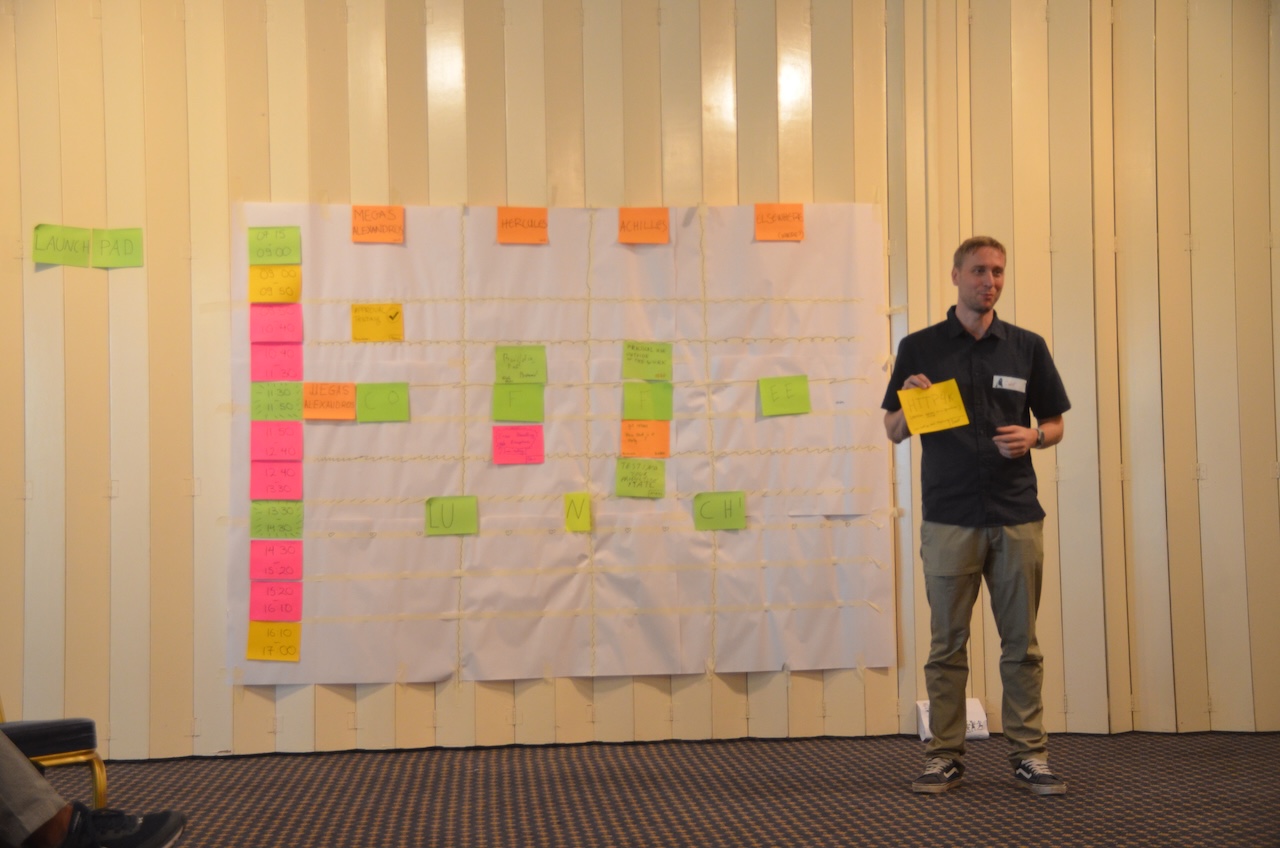
2. Topics are added to the “Space-Time Matrix”, which acts as the ad-hoc schedule for the day.
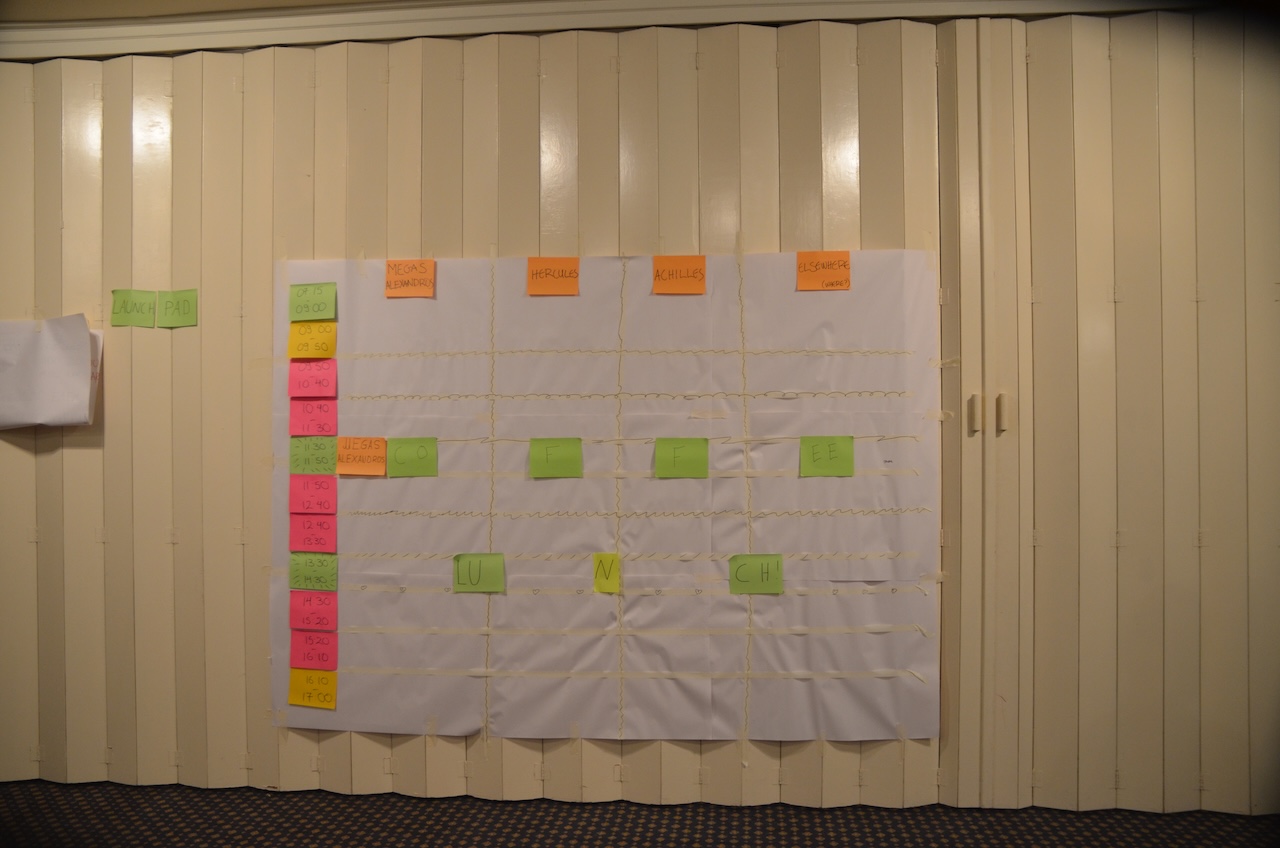
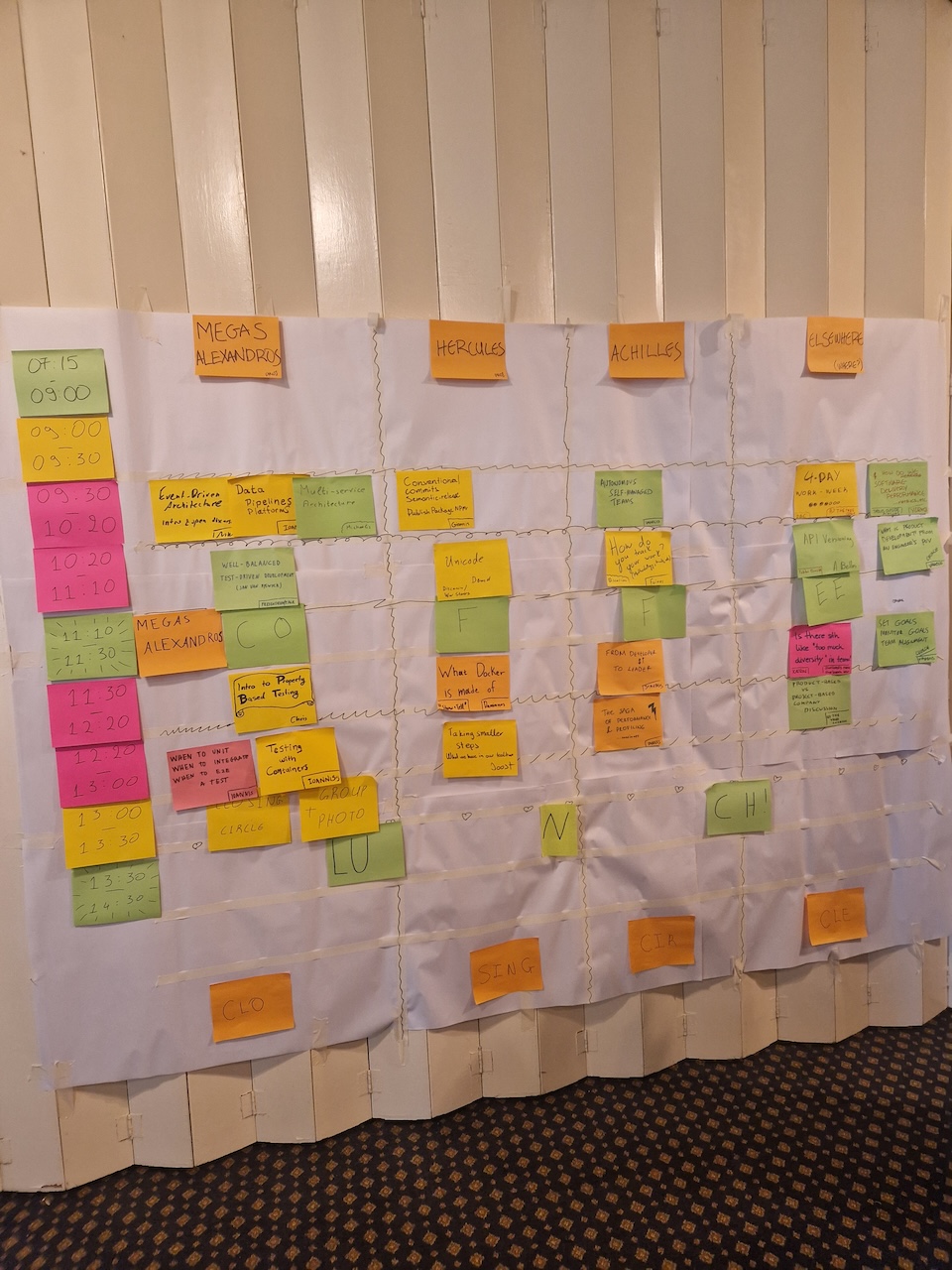
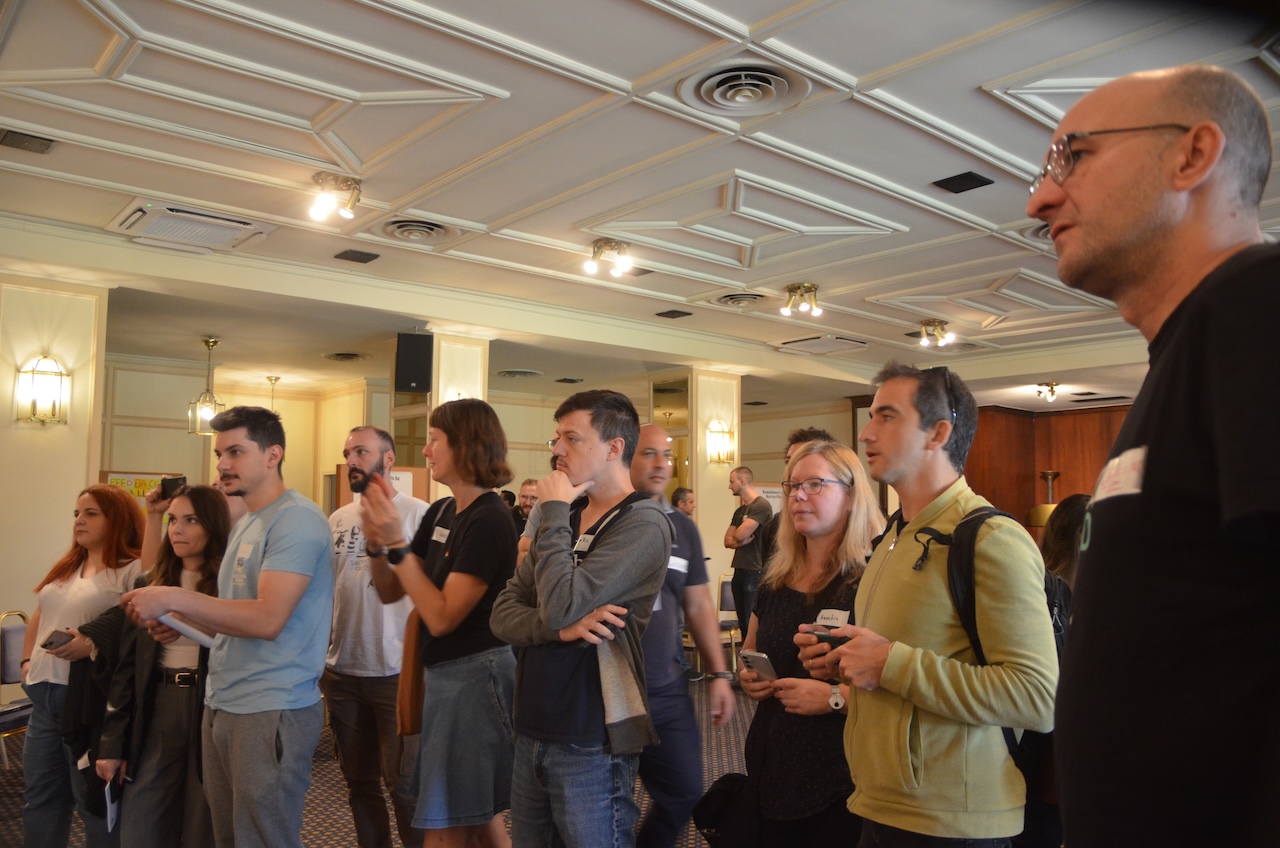
Sessions
3. Mornings (and maybe some afternoons) are spent discussing the topics suggested by the participants during the marketplace.
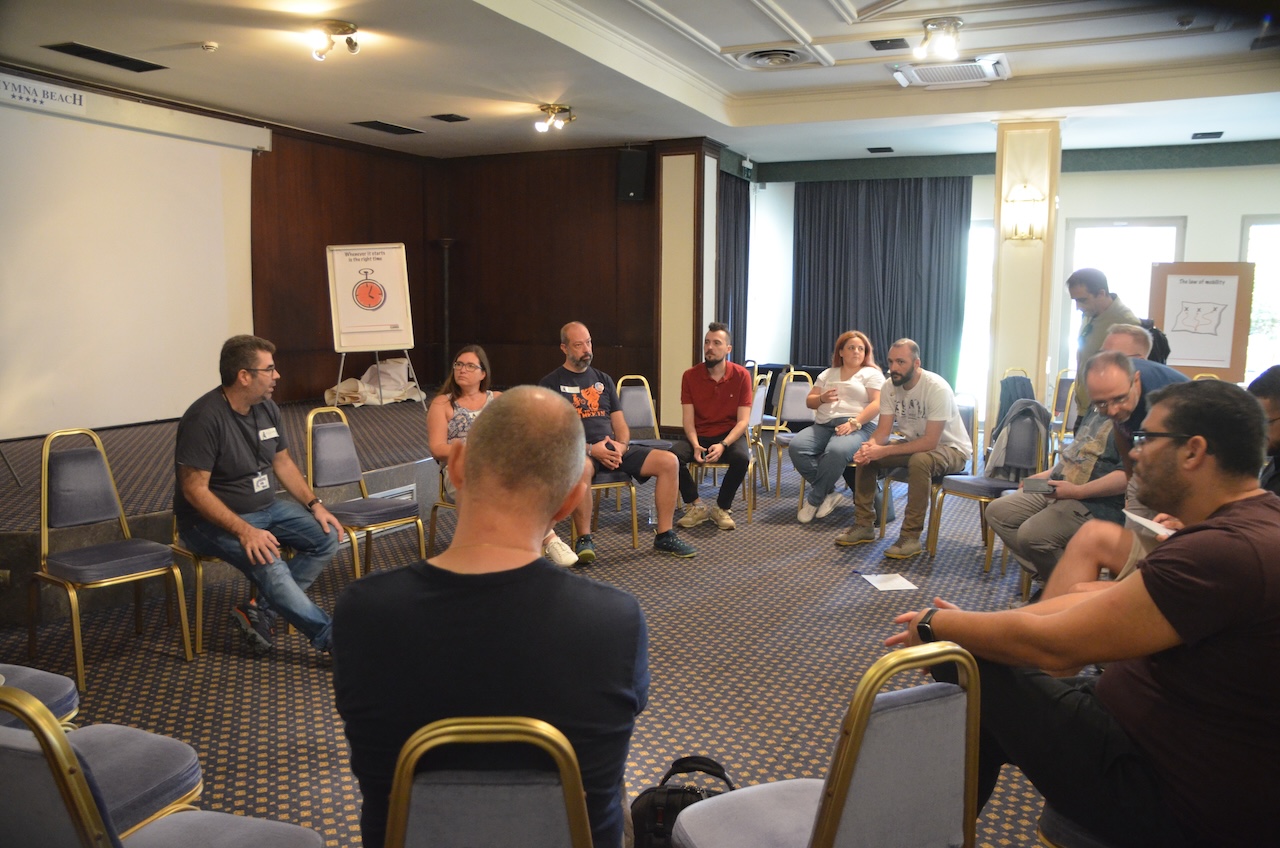
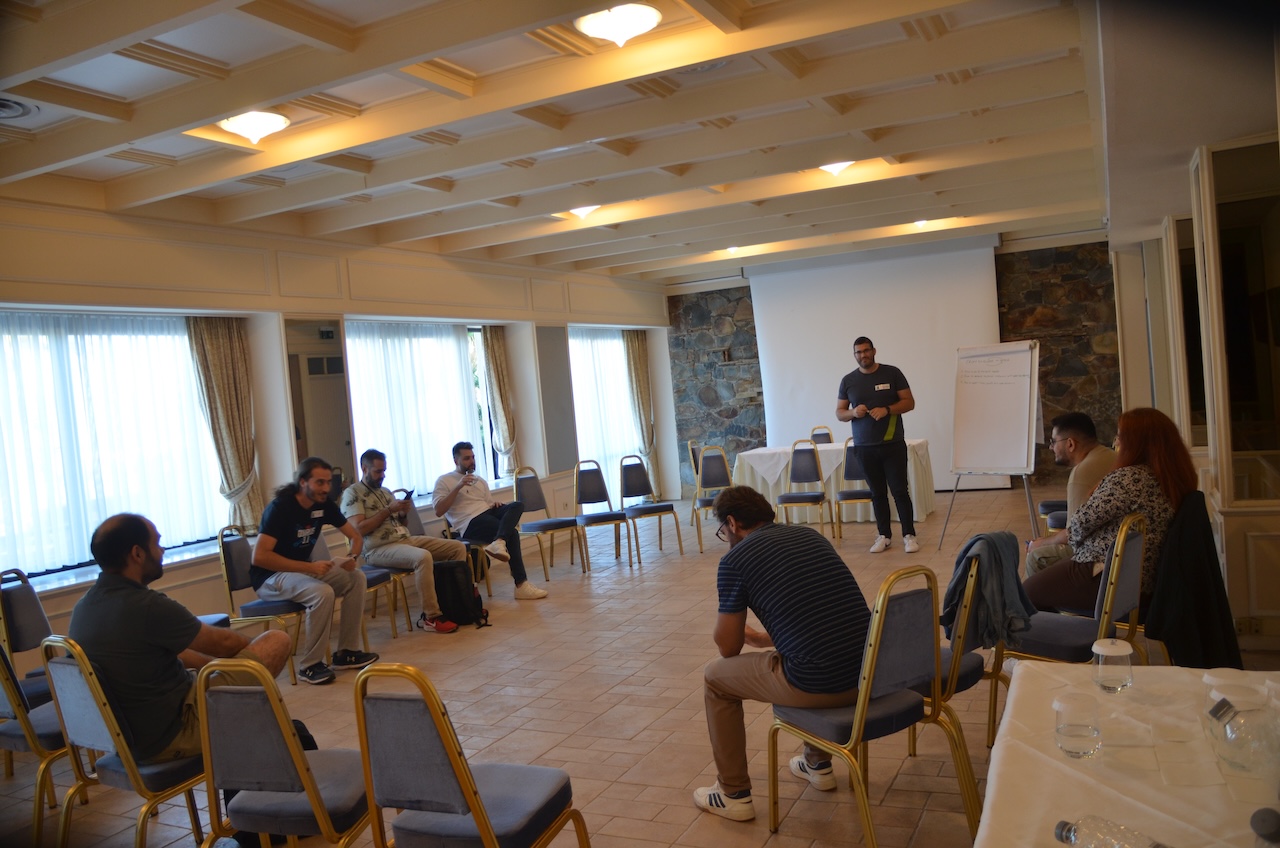
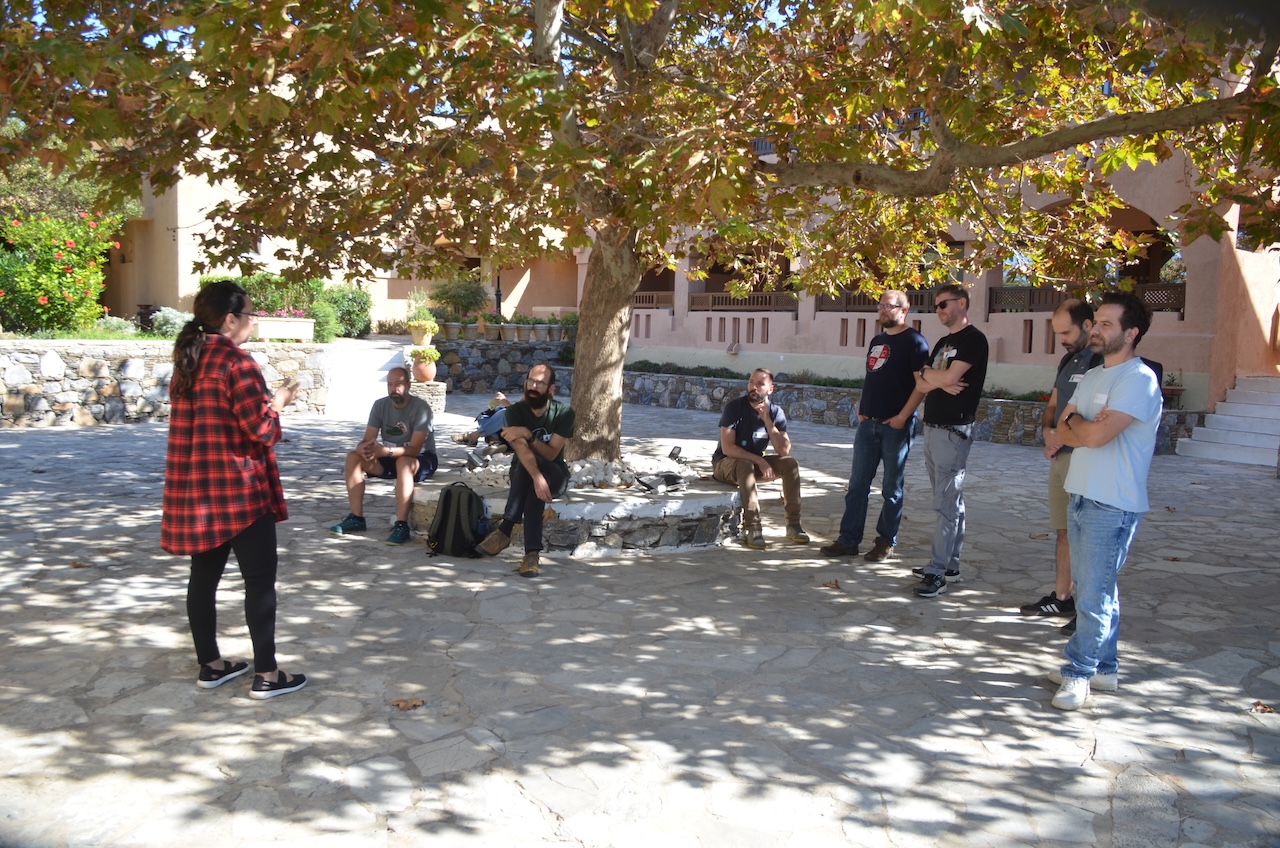
Coffee Breaks
Somethime between sessions a Coffee Break is almost necessary. Coffee, snacks and a lot of discussions
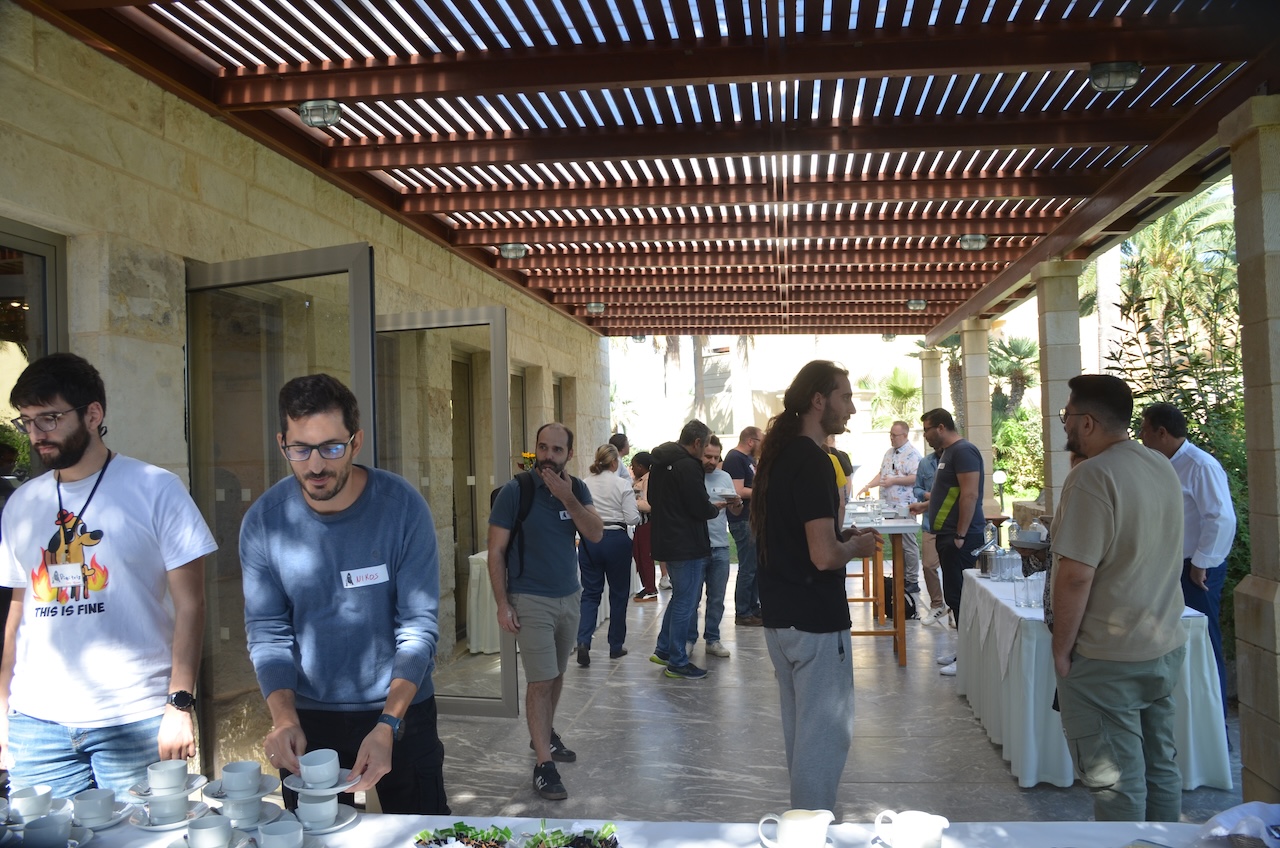
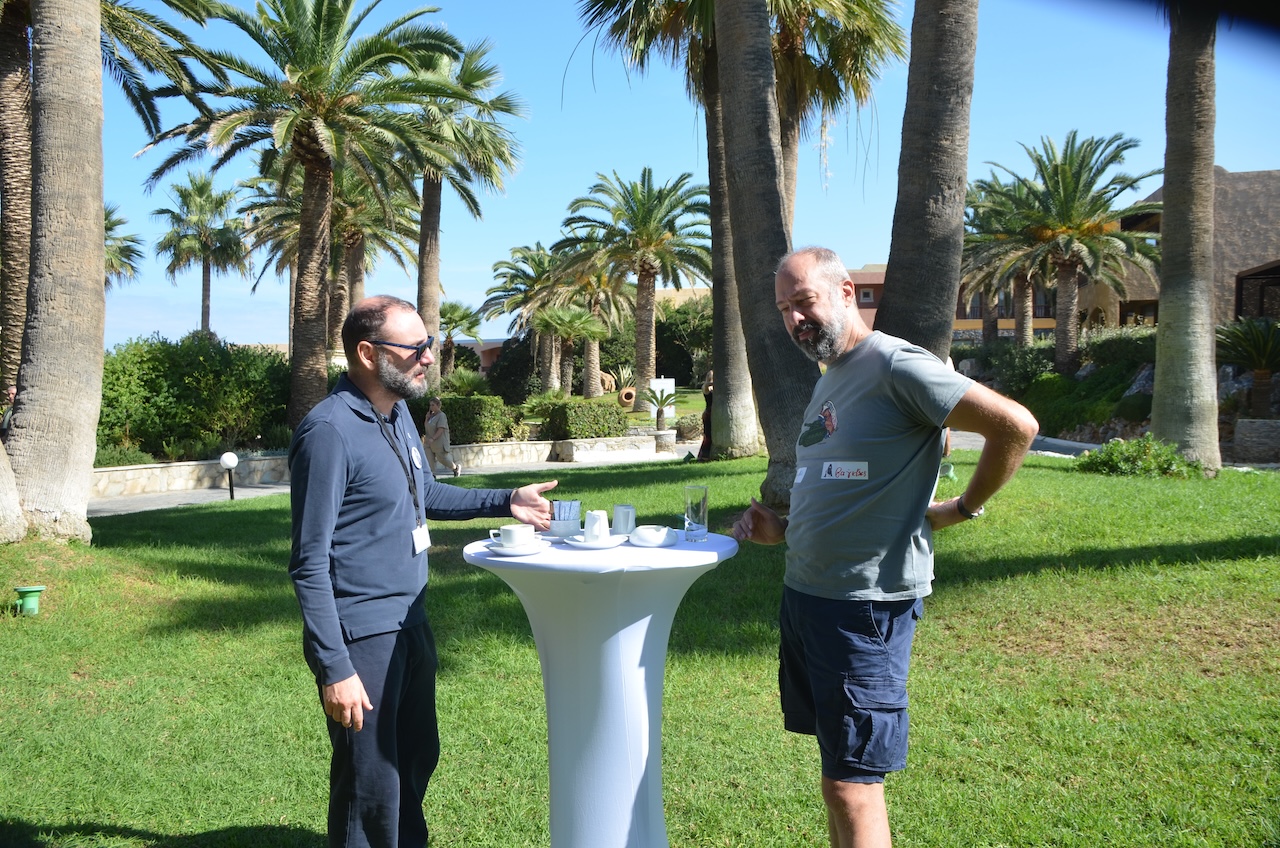
Lunch
After the morning sessions, a delicious and energizing “light” lunch at the hotel, keeps the discussions going.
Excursions
Experience the “Sun, Sea, Sand” that Crete is famous for, emerged in
some of the best that nature has to offer here.
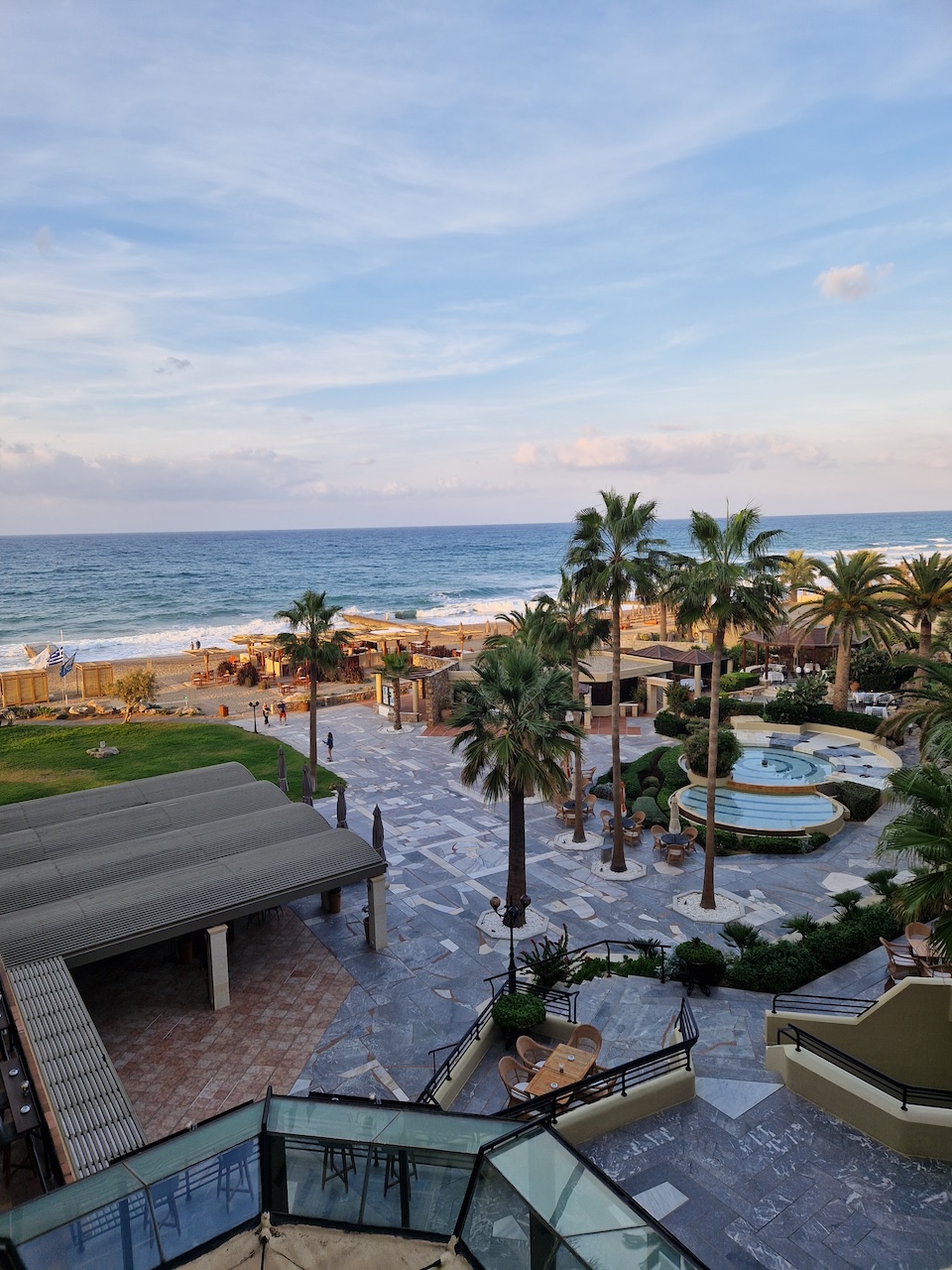
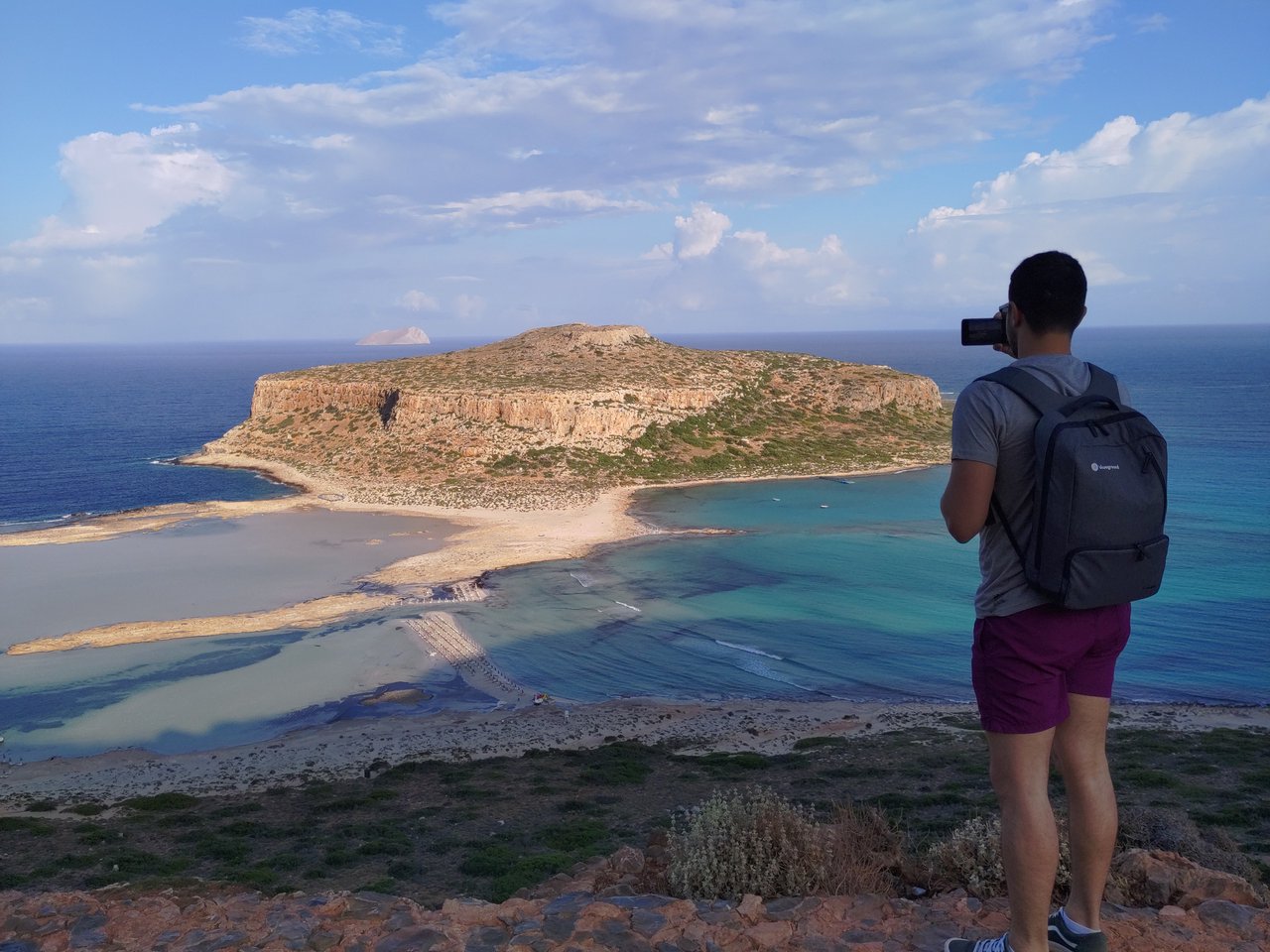
Dinners
We close the days off with a group dinner at hand-picked restaurants. We think you won’t experience many work dinners like these.
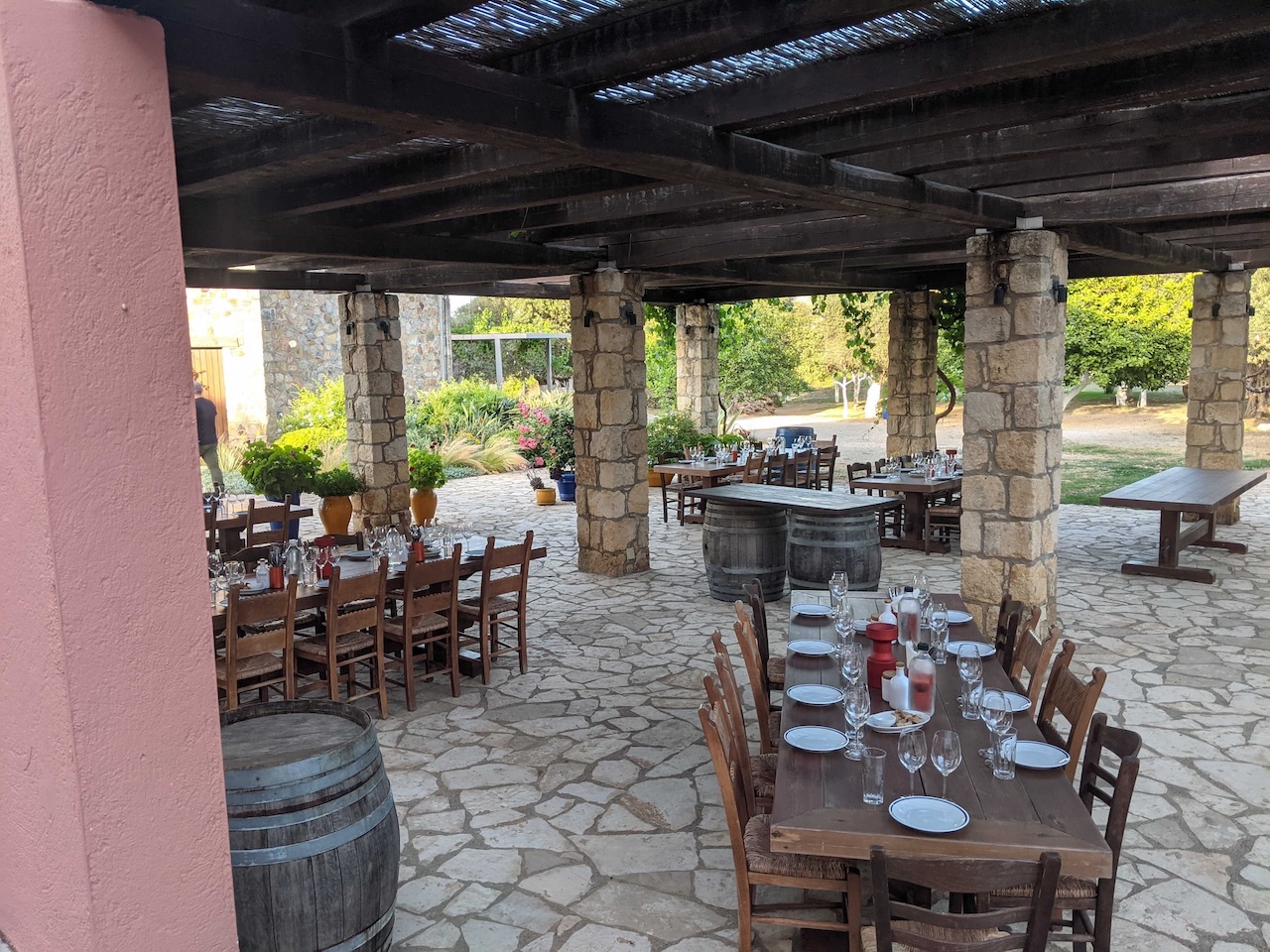
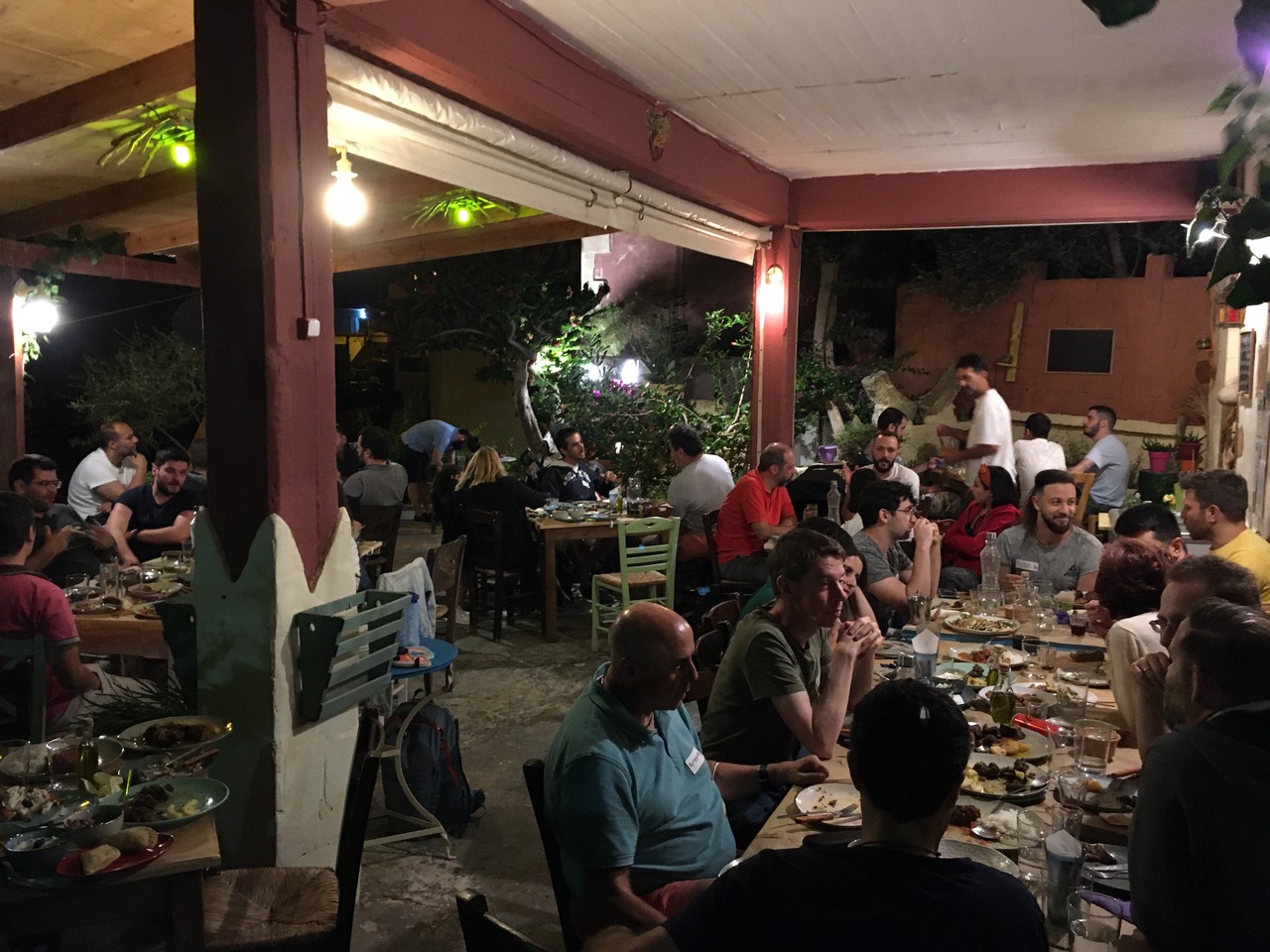
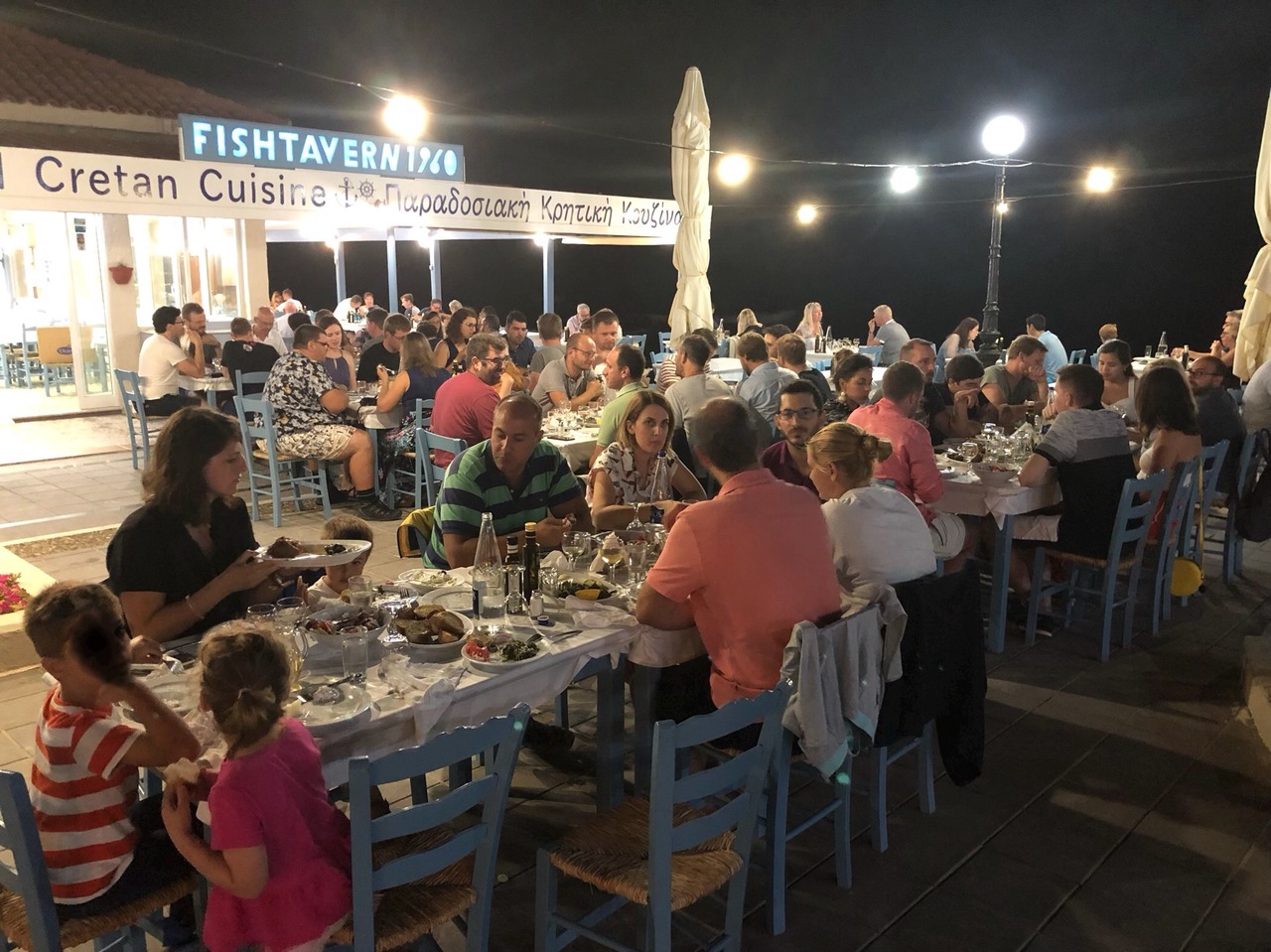
The academic version
- An unconference is a participant-driven meeting. In other words: you decide what topics you want to talk about, and work on, with whom – instead of hoping a “speaker” will address that topic at least briefly.
- Open Space (“Open Space Technology”, OST) is a specific form of an unconference that starts with an empty schedule. No times are set, no rooms are allocated, no topics are mandated, no separations made between “speakers” and “audience”. All participants work out a schedule by suggesting, planning, holding and evaluating sessions, collaboratively.
- Since everything is created collaboratively by the participants, obviously it matters which people feel invited, and how to “call” them together. You can find the “call” for SoCraTes Crete right on our home page.
Open Space Principles
To maximize what you can get out of the unconference, simple rules apply. Wikipedia summarizes them nicely:
-
Whoever comes is the right people
…reminds participants that they don’t need the CEO and 100 people to get something done, you need people who care. And, absent the direction or control exerted in a traditional meeting, that’s who shows up in the various breakout sessions of an Open Space meeting. -
Whenever it starts is the right time
…reminds participants that spirit and creativity do not run on the clock. -
Whatever happens is the only thing that could have
…reminds participants that once something has happened, it’s done—and no amount of fretting, complaining or otherwise rehashing can change that. Move on. -
When it’s over, it’s over
…reminds participants that we never know how long it will take to resolve an issue, once raised, but that whenever the issue or work or conversation is finished, move on to the next thing. Don’t keep rehashing just because there’s 30 minutes left in the session. Do the work, not the time. -
Wherever it happens is the right place
…reminds participants that space is opening everywhere all the time. Please be conscious and aware.
Plus, the Law of Mobility:
If at any time during our time together you find yourself in any situation where you are neither learning nor contributing, go someplace else.
This description was originally put together to describe the AgileCrete open space unconference, and has been adopted for SoCraTes Crete which continues the AgileCrete legacy.